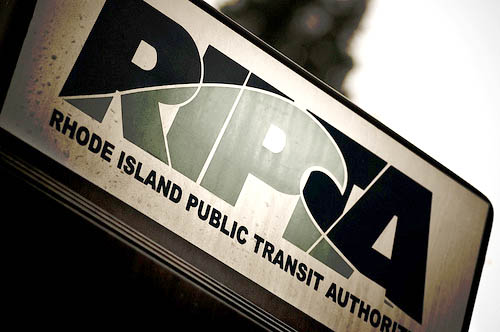 With the recent bankruptcy filing by Central Falls, RI, many are asking what will happen to the city’s most notorious flagship, the Wyatt Detention Facility. The city will not disappear, no more than Bridgeport, CT disappeared along route 95 ten years ago. Bridgeport is roughly the size of Providence, is Connecticut’s largest city, and some feared their bankruptcy in 1991 would drag the entire state into collapse. Central Falls is Rhode Island’s smallest city, and apparently home to large scale corruption. Here are the Top10 Reasons the privately owned, municipally managed, prison is a fitting ground zero to understand the situation.
With the recent bankruptcy filing by Central Falls, RI, many are asking what will happen to the city’s most notorious flagship, the Wyatt Detention Facility. The city will not disappear, no more than Bridgeport, CT disappeared along route 95 ten years ago. Bridgeport is roughly the size of Providence, is Connecticut’s largest city, and some feared their bankruptcy in 1991 would drag the entire state into collapse. Central Falls is Rhode Island’s smallest city, and apparently home to large scale corruption. Here are the Top10 Reasons the privately owned, municipally managed, prison is a fitting ground zero to understand the situation.
10: The Interest Payments- The Wyatt financial fiasco is a case study in collecting interest, as they have long since been underwater on their loans. The Central Falls Detention Facility Corporation refinanced their loan (bonds owned by investors) so they could build an addition, and have $229 million in liabilities at the start of 2011, while their prison was independently assessed at $45 million. With the “homeowners” barely able to make their payments now, they will surely face a “loan modification” in a very short period of time. I wonder if anyone is willing to take over the payments? I wonder if anyone is dumb enough to take over the prison and pay five times as much in annual interest than principal?
9: Brown University- John Birkelund, as CEO of Dillon Read, sold the Wyatt prison bonds to John Birkelund, as Chairman of Brown’s endowment; making a profit (surely) for John Birkelund and friends. Ever heard the phrase “Pump & Dump?”
8: AVCORR- Anthony Ventetuolo was a founding father of the Wyatt prison, and former blue-blood of the ACI. He learned that moving from public to private services, one can literally make millions of dollars for the same work. AVCORR ultimately took over management of the prison, and recent financial audits have expressed serious issues with the financial controls. He has been dismissed; and in a state where everyone is connected, an in depth state investigation by Lynch or Kilmartin is inconceivable.
7: RDW- Mike Doyle, a top lobbyist in Rhode Island is another founding father, greasing the wheels for a prison to legally become a for-profit enterprise and ensuring a base of lobbying efforts to create more prisoners, more crime, and more clientele. With an office 100 yards from the statehouse, some would say it’s a nice fit.
6: Federal Lobbying- After paying $10,000 a month to Dutko Worldwide to do D.C. lobbying, Wyatt still couldn’t keep the ICE contract after this shoestring operation (where all money has to pay off bond interest) could not keep Jason Ng alive. One has to appreciate there is a billion dollar industry that needs to encourage incarceration through lobbying efforts. And here you thought people only went to prison because of their own behavior. Meanwhile, AIG holds the bond agreement, and Halliburton was the construction company; companies who merely pay fines when caught stealing.
5: Fiscal Impact Statement- Is $50,000 a month lots of money? $10,000? Depends. The Wyatt is not only Tax Free, but it also gets free water and garbage from the City, and who knows what else. What is the water bill for 1000 people? What is the trash bill for Providence’s four largest hotels? Without a Fiscal Impact Statement, the hoped for, yet denied (“Suckers”) charity that Wyatt dangles may not even make up for the charity they receive from CF and the people of Rhode Island.
4: Mayor Moreau- This is the guy who was getting $10k contracts for friends to board up foreclosed houses. He appointed every member of the CFDFC Board (who are charged with managing the money). If anyone has “Federal Investigation” written all over them, it would be Mayor Moreau- who is known as a long-time friend of Patrick Lynch. Of course, if the Bush and Obama administrations would ever take some of their White Collar investigators back from the “War on Terror,” and put them back to the “War on White Collar Crime”…
3: Judges Pfeifer and Flanders- Connected as they come in RI (long time judiciary) and respected enough to be appointed receivers of Central Falls. Although CFDFC, the municipal corporation created to manage Wyatt, is a “distinct legal entity” from the city, these judges fail to point this out. Instead they allow the success or failure of this business to be seen as tied to the city, and the state.
2: Former A.G. Patrick Lynch is more embedded in Wyatt than just a friendship with Moreau. Of all the attorneys in RI to be Wyatt’s chief legal counsel, Lynch’s sister got the job when he was the Attorney General. What are the connections between current A.G. Kilmartin (also from Pawtucket) and the Wyatt? Perhaps that is an easy question for some.
1: Congressman Cicillini a rival to Mayor Moreau on leaving a city in shambles, and now that Wyatt represents “jobs” in his congressional district… We shall see how much he supports tax dollars being diverted to private investors’ financial scandal. Is there a protection of taxpayer funds? Is there a concern for human rights? For civil rights? Any concern for the families and communities being used to finance this business deal?
The For-Profit privately owned Wyatt prison is not the Alamo. It is not Bunker Hill, nor Ground Zero. Its just a bad business deal- and investors know that it doesn’t always work out. Ciao.




